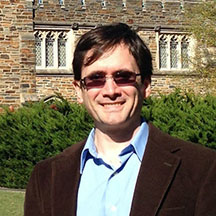
Luis Alvarez-Castro published a chapter on Miguel de Unamuno’s poetry in a collective volume on Unamuno that appeared in Spain, plus a chapter on Spanish naturalist novel included in a A History of the Spanish Novel published by Oxford University Press. Additionally he published an article on the intersections of literature and history in the accounts of the Peninsular War (1808-1814), “Mito y realidad en las crónicas de la Guerra de la Independencia (1808-1814): Las memorias del seminarista inglés Robert Brindle,” in Bulletin of Hispanic Studies. He presented his work on film representations of Spain’s ongoing financial crisis at UF’s Center for European Studies and the South Atlantic Modern Language Association Convention. With regards to his service to the College and the University, he was elected chair of the CLAS Finance Committee and member of the Faculty Senate.
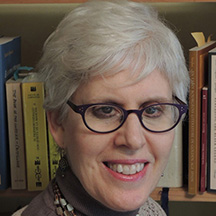
Shifra Armon has had an active conference year, with destinations ranging from Vancouver to Miami, and from Austin to Berlin. Most recently, she gave a paper at Harvard University at the American Comparative Literature Association meeting (March 17-20, 2016) entitled, “Perfidious Pals: Male Bonds Betrayed in José de Camerino’s ‘El pícaro amante’ [The Gallant Imposter]” (1624)”. She notes that her most unusual meeting was the 44th Triennial Council of the Phi Beta Kappa Society, the nation’s oldest honor society (founded in 1776). As UF’s delegate to the Council, held in Denver from October 8-10, 2015, Shifra voted on new national officers, and charters for three new chapters (Mercer, Oregon State and the University of Houston). She also voted for a resolution opposing firearms on college campuses. Dr. William (“Bro’”) Adams, current Director of the National Endowment for the Humanities, addressed the Council on the occasion of the 50th Anniversary of the founding of the NEH. Dr. Armon is also delighted to announce the publication of her most recent book, Masculine Virtue in Early Modern Spain (Ashgate 2015).

Ana de Prada Pérez has been working on several projects on code switching (CS), or the language alternation practices in which bilinguals sometimes engage. She is revising a paper on the effects of CS on the form of the subject in Spanish, in collaboration with Dr. Jacqueline Toribio (UT Austin). Her article on the effects of CS on copula choice in Spanish, coauthored with former student Andrea Hernández, was accepted for a volume on Cuban Spanish edited by Dr. Alex Cuza. Lastly, with former student Nick Feroce, she has been writing up a paper on the effects of CS on mood selection in relative clauses.
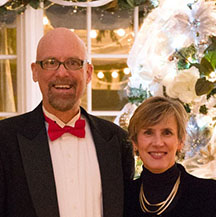
Associate professor Elizabeth “Libby” Ginway had a productive sabbatical year 2014-2015, drafting three chapters of a book manuscript on Brazilian and Mexican science fiction and fantasy. During that time she also had two chapters accepted for edited volumes and two articles accepted by Alambique and Revista Iberoamericana. In addition to presenting at conferences in Puerto Rico and Aachen, Germany in 2015, she was invited to give two talks in São Paulo, Brazil in May 2016. During Summer 2015, she and Andréa Ferreira developed a new course on translation as part of the development of a certificate for Portuguese and the Professions, along with new content for the culture course focusing on the 2014 World Cup and the 2016 Olympics for the Study Abroad program in Rio de Janeiro. She administered the Portuguese proficiency test Celpe Bras in Spring/Fall 2015 and Spring 2016. In the fall semester of 2015, she also collaborated with Luis Álvarez Castro and Victor Jordán to develop a course that combines film and literature of Spain and Latin America taught in English. In spring 2016, she helped bring Brazilian film producer Elisa Tolomelli and Cuban science-fiction writer Michel Encinosa to campus. With the Scholarship Enhancement Fellowship for Summer 2016, she plans to finish the introduction for her book project.
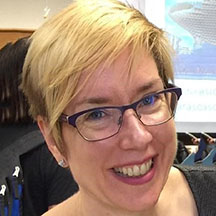
Emily Hind’s article on age bias in the Mexican novella, entitled “Ageism, the Environment, and the Specter: The Broad Predicament in Carlos Fuentes’s Aura and Carmen Boullosa’s Antes” appeared in the literary journal Chasqui. Her article on Fabio Morábito’s novel appeared in the first collection of criticism on Morábito, edited by Tamara Williams and Sarah Pollack. Hind also published an article in one of the first books on disability studies and Latin American literature, edited by Susan Antebi and Beth Jörgensen. Hind’s study of Mexican pro-reading publicity appeared in a volume on The Middle Class in Emerging Societies edited by Leslie L. Marsh and Hongmei Li. Hind has two new interviews with Mexican novelists forthcoming in literary journals, one with Luis Felipe Lomelí and another with Guillermo Fadanelli. In turn, an interview with her, conducted in Spanish by journalism student Amaury Sablon broadcast her thoughts on feminism on WUFT/Florida Public Radio. Hind coordinated a seminar on “Lawlessness and Grief Studies,” which gathered a panel of academics and the Mexican writer Ester Hernández Palacios, whose daughter was killed in a street shooting in 2010, for the American Comparative Literature Association, conference at Harvard.
During Fall 2015, Victor Jordan published his first collection of short stories entitled Provocaciones. UF graduate Ana María Díaz Collazos (The College of Wooster), was one of the editors, and another UF graduate, Claudia García (University of Nebraska-Omaha), wrote the prologue. Students in Kathy Navajas’s Service Learning Class produced a documentary on the experience of immigrants in the U.S., titled “La voz de la experiencia,” and they chose one of Victor’s poems, “Emigrar,” to serve as an introductory epigraph. During the summer he was invited to participate in Dr. Shifra Armon’s class by offering her students a short workshop on poetry.
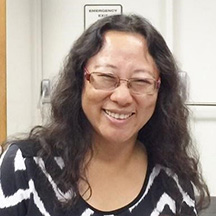
Su Ar Lee was promoted to Senior Lecturer in Fall 2015. She continues to help coordinate our intermediate conversation course, and to teach other courses in Spanish phonetics. This year she will serve as director of our study abroad program in Valencia, Spain.
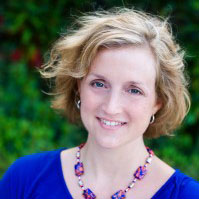
Gillian Lord is in her 6th year as Department Chair, and has signed on to do so until August, 2019. Over the past year she has continued her research with Rosetta Stone, attempting to assess if it is effective as a language teaching tool (spoiler: it’s not!). These articles have appeared in the Modern Language Journal and in the International Association for Language Learning and Technology Journal. She is currently working on invited chapters related to technology tools for teaching and learning foreign languages, as well as the entirely digital first-year Spanish text she is co-authoring for Pearson Education.
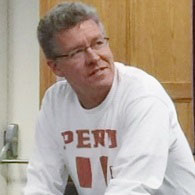 GREG MORELAND gave a presentation at East Carolina University (Department of Foreign Languages and Literatures) entitled “Certificate in Spanish for the Professions: (Re)invigorating the Foreign Language Curriculum.”
GREG MORELAND gave a presentation at East Carolina University (Department of Foreign Languages and Literatures) entitled “Certificate in Spanish for the Professions: (Re)invigorating the Foreign Language Curriculum.”
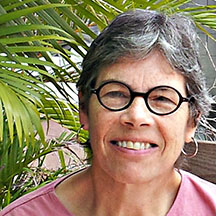
KATHY NAVAJAS continues to work on expanding service learning opportunities for students both locally and in Santiago, Dominican Republic. The oral history project with Spanish-speaking immigrants now includes fifty interviews carried out by SPN3948 students over seven semesters. Last spring, while on Professional Development Leave, she designed a volunteer manual for students doing literacy work in Santiago, so that they can be more effective and come home more satisfied with their contribution. Additionally, she is working with Gators for Equal Opportunity to tutor the children of Mexican and Central American immigrants, many of whom speak a Mayan language at home as well as Spanish and English, and helping to get undergrads and colleagues involved so that these children can be successful learners in school.
 CHARLES A. PERRONE published new segments concerning Brazilian poetry and film in books and journals in Italy, the US, and Brazil. On the creative side, he issued another chapbook with moriapoetry of Chicago: Out of Alphabetical Order. For MLA 2016 he organized a joint session on “The Development of Luso-Brazilian Studies and Reading Publics: Honoring Fred P. Ellison.” He delivered the Global Studies Distinguished Lecture at Temple University, Philadelphia in Spring and once again participated in the BRASA (Brazilian Studies Association) Conference at Brown University. In summer 2016 he will direct UF’s study- abroad program in Rio de Janeiro.
CHARLES A. PERRONE published new segments concerning Brazilian poetry and film in books and journals in Italy, the US, and Brazil. On the creative side, he issued another chapbook with moriapoetry of Chicago: Out of Alphabetical Order. For MLA 2016 he organized a joint session on “The Development of Luso-Brazilian Studies and Reading Publics: Honoring Fred P. Ellison.” He delivered the Global Studies Distinguished Lecture at Temple University, Philadelphia in Spring and once again participated in the BRASA (Brazilian Studies Association) Conference at Brown University. In summer 2016 he will direct UF’s study- abroad program in Rio de Janeiro.
 DAVID PHARIES is pleased to announce the publication of the second edition of his books entitled Breve historia de la lengua española / A Brief History of the Spanish Language, published simultaneously in Spanish and English by the University of Chicago Press, 2015.
DAVID PHARIES is pleased to announce the publication of the second edition of his books entitled Breve historia de la lengua española / A Brief History of the Spanish Language, published simultaneously in Spanish and English by the University of Chicago Press, 2015.
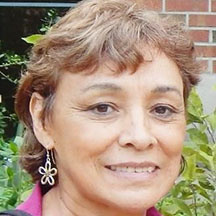 in charge of coordinating the intermediate level courses, SPN2200 and 2201. Besides teaching those courses, she has also taught literature, composition, commercial Spanish, and more. She was promoted to Senior Lecturer (Fall 2015).
in charge of coordinating the intermediate level courses, SPN2200 and 2201. Besides teaching those courses, she has also taught literature, composition, commercial Spanish, and more. She was promoted to Senior Lecturer (Fall 2015).

JORGE VALDÉS KROFF attended the 1st Florida Psycholinguistics Meeting held at Florida State University in October, 2015. He presented a study which uses eye-tracking to examine the comprehension patterns of two groups of Spanish-English bilinguals (one group in Granada, Spain, and another one in the U.S.) while listening to code-switched speech (i.e. speech that switches fluidly between Spanish and English). In addition, three UF students gave poster presentations of their projects: Falcon Restrepo Ramos (2nd year PhD) presented “The Effects of Spanish Diminutives in Gender Processing of Non-canonical Nouns;” Keegan Storrs (2nd year MA) presented “One System or Two? Effects of Study Abroad on the L1;” Chloe de Crecy (undergraduate) presented “The Gender Congruency Effect in Spanish Heritage Speakers.”